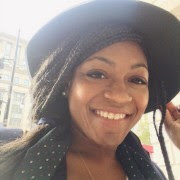Taking it for granted that when you’re shopping alone, you probably won’t be followed or harassed.
Knowing that if you ask to speak to “the person in charge,” you’ll almost certainly be facing someone of your own race.
Being able to think about different social, political or professional options without asking whether someone of your race would be accepted or allowed to do what you want to do.
Assuming that if you buy a house in a nice neighborhood, your neighbors will be pleasant or neutral toward you.
Feeling welcomed and “normal” in the usual walks of public life, institutional and social.
What is white privilege? It’s the level of societal advantage that comes with being seen as the norm in America, automatically conferred irrespective of wealth, gender or other factors. It makes life smoother, but it’s something you would barely notice unless it were suddenly taken away — or unless it had never applied to you in the first place.
In 1988, the professor Peggy McIntosh used the paper White Privilege: Unpacking the Invisible Knapsack to describe it as a set of unearned assets that a white person in America can count on cashing in each day but to which they remain largely oblivious. The concept has been percolating in academic circles ever since and is approaching broad usage among young people on the political left. Yet as Post reporter Janell Ross noted earlier this week, it’s also a term that many Americans “instinctively don’t trust or believe to be real,” despite reams of evidence to the contrary. Black children– 4-year-olds! — comprise 18 percent of preschool enrollment but are given nearly nearly 50 percent of all out-of-school suspensions. Job applicants with white-sounding names are 50 percent more likely to get called in for an interview. Black defendants are at least 30 percent more likely to be imprisoned than white defendants for the same crime.
Why does such a fraught piece of academic lingo matter now? Because people are finally beginning to talk about what it means in their own lives. At a time when minorities are becoming more vocal about the ways in which their experiences in America differ from those of their white counterparts, the term might finally be entering the mainstream. On Monday night, at a forum for presidential hopefuls held in Iowa, Democratic front-runner Hillary Clinton was asked by an audience member to explain what white privilege meant to her, and how it had affected her life. Her response? “Look, where do I start?”
Yet for every instance in which white privilege is acknowledged, there is an inevitable backlash.
Commentators quickly jump in to remind us that “not all white people are privileged,” a clear (and perhaps willful) misreading of the term. Obviously not all white people are wealthy, and yes, there are minorities who have achieved wealth and other marks of status. But white privilege is something specific and different – it’s the idea that just by virtue of being a white person of any kind, you’re part of the dominant group which tends to be respected, assumed the best of, and given the benefit of the doubt. That just isn’t the case for people of other races, no matter how wealthy, smart or hard-working they might be.
Others denounce the term as a weapon used to guilt, shame, and silence, pointing at presumably well-meaning students told by holier-than-thou faculty and classmates to “check their privilege.” Yet while the term can be used to silence, that’s more the fault of a rude terminology-wielder than of the concept itself. All sorts of formerly harmless words have been deployed to guilt people and suppress speech — “unpatriotic” and “elitist” come to mind. A reminder to acknowledge one’s privilege is just a reminder to be aware — aware that you might not be able to fully understand someone else’s experiences, or that the assumptions you were brought up with may be blinding you to certain concerns. That awareness that is key to any sort of civil discussion, about race, class or anything else.
Before everyone gets too defensive (and let’s be honest — it’s probably too late), a few notes of clarification: Pointing out that white privilege exists isn’t the same as accusing every white person of being a racist. Acknowledging that you might benefit from such privilege isn’t equivalent to self-hatred or kowtowing to detested “social justice warriors.”
The thing about white privilege is that it tends to be unintentional, unconscious, uncomfortable to recognize but easy to take for granted. But it’s that very invisibility that makes it that much more important to understand: Without confronting what exists, there’s no chance of leveling the field.















